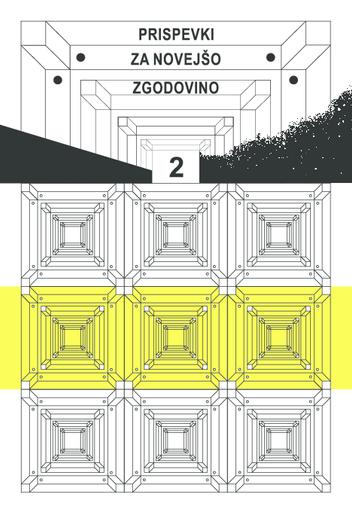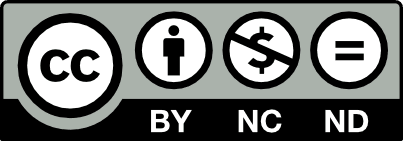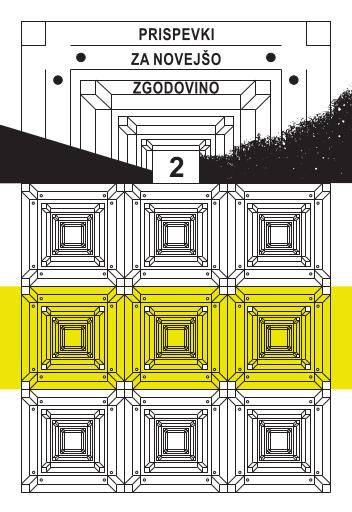
/
Periodicals
/
Prispevki za novejšo zgodovino
Parliamentary Discussion in the First Yugoslavia

Author(s):Jure Gašparič
Co-author(s):Zdenko Čepič (odg. ur.), Damijan Guštin (gl. ur.), Borut Praper (prev.), Bojana Samarin (lekt.)
Leto:2014
Publisher(s):Inštitut za novejšo zgodovino, Ljubljana
Language(s):slovenščina
Type(s) of material:text
Keywords:Jugoslavija, politika, parlament, parlamentarna demokracija, Yugoslavia, politics, parliament, parliamentary democracy
Rights:

This work by Jure Gašparič is licensed under Creative Commons Attribution-NonCommercial-NoDerivs 4.0 International
Files (1)

Name:prispevki_2014-2.pdf
Size:2.04MB
Format:application/pdf
Permanent link:https://hdl.handle.net/11686/file22600
Description
In the following contribution the author analyses the key characteristics of the parliamentary discussion in the National Assembly of the Kingdom of SHS / Yugoslavia. He builds on the thesis that the discussion was the public mirror of the parliament and the aspect which allows us to make conclusions about how the problems in the state were perceived as well as about the general democratic standards. The article first presents the parliamentary (procedural) rules, then describes the characteristics of the budgetary discussion, and finally focuses specifically on the »critical moments « – use of non‑parliamentary expressions, interruptions of the sessions, and disturbances. These were characteristic of the parliament. The contribution concludes with the analysis of the discussions taking place in the 1930s, when the formal and substantive aspects of parliamentary democracy were limited.
Metadata (12)
- identifierhttps://hdl.handle.net/11686/37335
- title
- Parlamentarna razprava v prvi Jugoslaviji
- Parliamentary Discussion in the First Yugoslavia
- creator
- Jure Gašparič
- contributor
- Zdenko Čepič (odg. ur.)
- Damijan Guštin (gl. ur.)
- Borut Praper (prev.)
- Bojana Samarin (lekt.)
- subject
- Jugoslavija
- politika
- parlament
- parlamentarna demokracija
- Yugoslavia
- politics
- parliament
- parliamentary democracy
- description
- Avtor v prispevku analizira ključne značilnosti parlamentarne razprave v Narodni skupščini Kraljevine SHS/Jugoslavije. Pri tem izhaja iz teze, da je bila razprava javno zrcalo parlamenta in točka, skozi katero je moč sklepati o zaznavi problemov v državi in siceršnjih demokratičnih standardih. V prispevku najprej predstavi parlamentarna (poslovniška) pravila, nato značilnosti proračunske razprave, v nadaljevanju pa se posebej posveti »nevralgičnim momentom« − uporabi neparlamentarnih izrazov, prekinitvam sej, »kravalu«. Ti so bili osrednji razpoznavni znak parlamenta. Prispevek zaključi z analizo razprave v tridesetih letih, ko je bila parlamentarna demokracija po formalni in vsebinski plati okrnjena.
- In the following contribution the author analyses the key characteristics of the parliamentary discussion in the National Assembly of the Kingdom of SHS / Yugoslavia. He builds on the thesis that the discussion was the public mirror of the parliament and the aspect which allows us to make conclusions about how the problems in the state were perceived as well as about the general democratic standards. The article first presents the parliamentary (procedural) rules, then describes the characteristics of the budgetary discussion, and finally focuses specifically on the »critical moments « – use of non‑parliamentary expressions, interruptions of the sessions, and disturbances. These were characteristic of the parliament. The contribution concludes with the analysis of the discussions taking place in the 1930s, when the formal and substantive aspects of parliamentary democracy were limited.
- publisher
- Inštitut za novejšo zgodovino
- date
- 2014
- 01. 01. 2014
- type
- besedilo
- language
- Slovenščina
- isPartOf
- rights
- license: ccByNcNd
Citirano v (1)
| Tipologija | Avtor(ji) | Naslov | Kraj | Založba | Leto |
|---|---|---|---|---|---|
| 1.01 Izvirni znanstveni članek | Ivašković, Igor | Pravna narava države in kraljestva/Kraljevine SHS v konfliktu jugoslovanskih ideologij | Ljubljana | Inštitut za novejšo zgodovino | 2020 |
Seznam literature v delu (14)
| Stran | Avtor | Naslov | Vir | Kraj | Založba | Leto |
|---|---|---|---|---|---|---|
| 65 | Pržić ; Ilija A. | Poslovnik Narodne skupštine kraljevine Srba, Hrvata i Slovenaca sa objašnjenjima iz parlamentarne prakse i zakonskim odredbama | Beograd | Državna Štamparija | 1924 | |
| 65 | Wintr ; Jan | Česká parlamentní kultura | Praha | 2010 | ||
| 66 | Cvirn ; Janez | Razvoj ustavnosti in parlamentarizma v Habsburški monarhiji : Dunajski državni zbor in Slovenci (1848-1918) | Ljubljana | Filozofska fakulteta, Oddelek za zgodovino | 2006 | |
| 66 | Engelsfeld ; Neda | Poslovnik ustavotvorne skupštine Kraljevine Srba, Hrvata i Slovenaca 1921. godine | Zbornik Pravnog fakulteta u Zagrebu = Recueil des travaux de la Faculte de droit de l'Universite de Zagreb = Collected papers of the University of Zagreb Law School. ISSN 0350-2058. - Vol. 44, št. 4 (1994) str. 377-416 | 1994 | ||
| 66 | Hohnjec ; Josip | O ustavi naše države | Slovenci v desetletju 1918–1928. Zbornik razprav iz kulturne, gospodarske in politične zgodovine | Ljubljana | 1928 | |
| 67 | Gligorijević ; Branislav | Parlament i političke stranke u Jugoslaviji : 1919-1929 | Beograd | Institut za savremenu istoriju ; Narodna knjiga | 1979 | |
| 67 | Jovanović ; Slobodan | Ustavno pravo Kraljevine Srba, Hrvata i Slovenaca | Beograd | G. Kon | 1924 | |
| 69 | Ribar ; Ivan | Politički zapisi. [I] | Beograd | Prosveta | 1948 | |
| 70 | Stojkov ; Todor | Vlada Milana Stojadinovića : (1935-1937) | Beograd | Institut za savremenu istoriju | 1985 | |
| 73 | Stojadinović ; Milan M. | Ni rat ni pakt : Jugoslavija između dva rata | Rijeka | Otokar Keršovani | 1970 | |
| 73 | Hombach ; Bodo | Zur definition des Skandals | Skandal-Politik! Politik-Skandal! Wie politische Skandale entstehen, wie sie ablaufen und was sie bewirken | Bonn | 2013 | |
| 73 | Bösch ; Frank | Wie entstehen Skandale? Historische Perspektiven | Gegenworte, 29, Frühjahr 2013 | 2013 | ||
| 77 | Weigel ; Maximilian | Die Lehre von der parlamentarischen Disziplin in rechtsvergleichender Darstellung | Leipzig | 1909 | ||
| 78 | Kováč ; Dušan | Demokracia, politická kultúra a dedičstvo totality v historickom procese | Z dejín demokratických a totalitných režimov na Slovensku a v Československu v 20. storočí. Historik Ivan Kamenec 70-ročný. | Bratislava | 2008 |